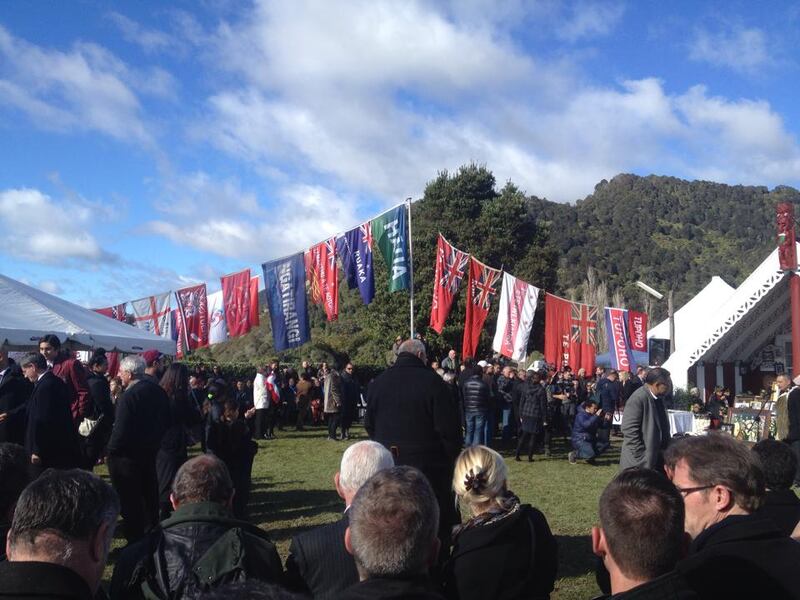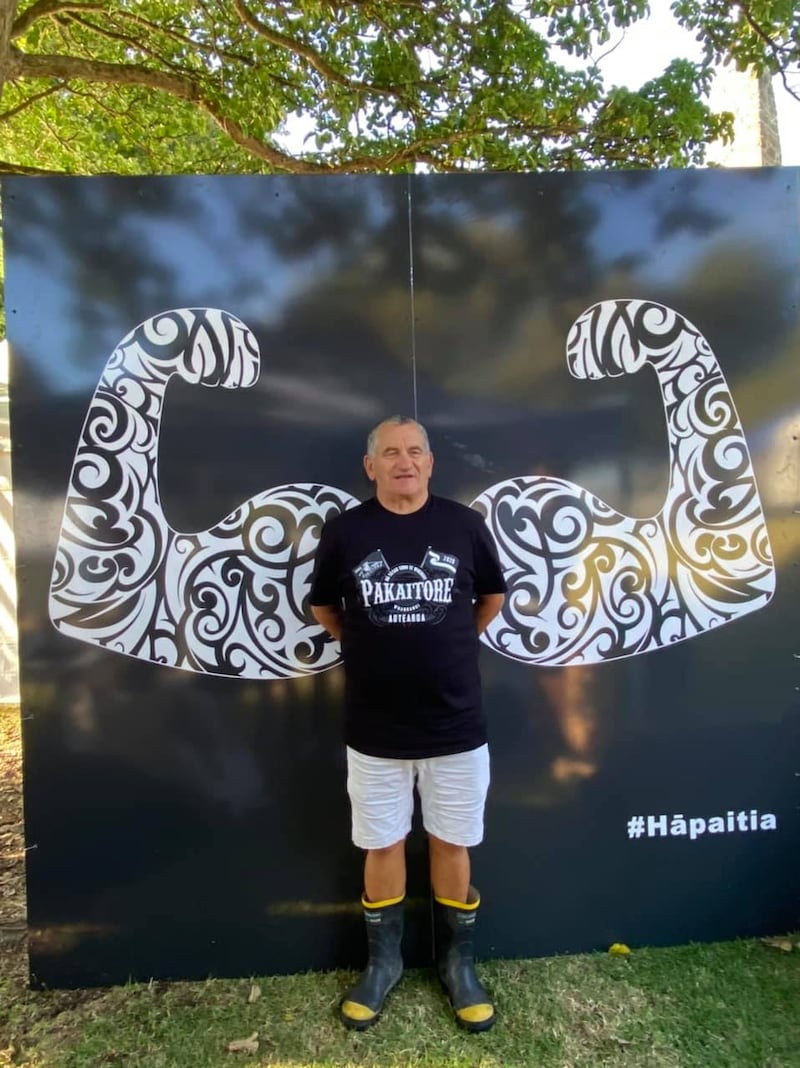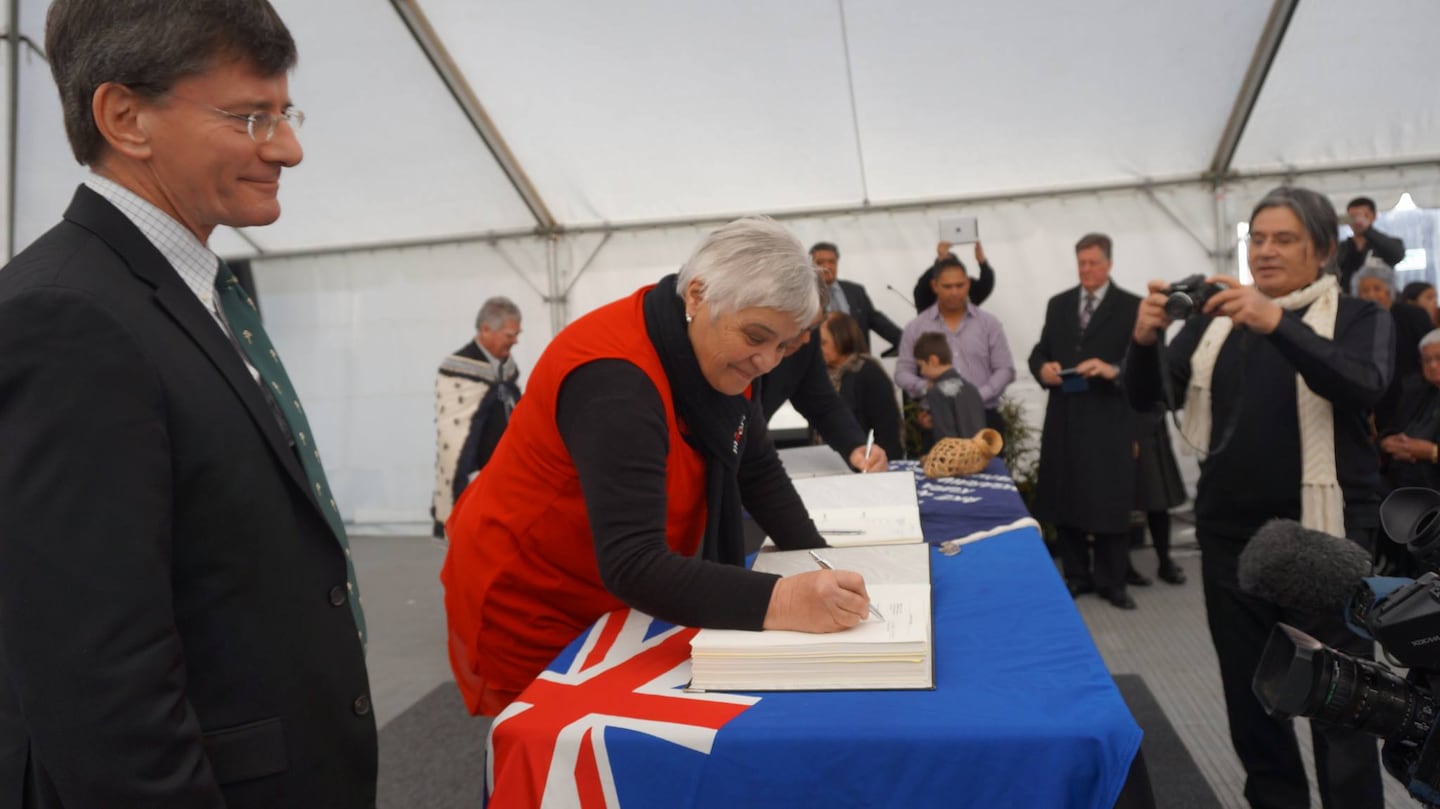Whanganui iwi leaders Dame Tariana Turia and Ken Mair are calling for a national gathering of Māori leadership to articulate issues and find mechanisms to bring a systematic change that doesn’t see Māori remain “slaves within a foreign system that has been imposed upon them”.
The new government plans to review any current laws within New Zealand that have references to the Treaty of Waitangi and do away with Māori names within Crown entities and government departments. Mair says Māori must act and take a stand against this mad neoliberal economic system based on individualism and competitiveness.
“Our people need to stand up,” Mair says. “One of the thoughts yet to be worked through properly is really calling a national hui of all our Māori leadership, all those who believe the environment’s at stake, Whānau are at stake. And so there needs to be a forum where we can articulate the issues and find mechanisms to challenge and attack some of this behaviour that’s presently, obviously, within the new government.
“We are contemplating on calling for a national hui, obviously in the early New Year, to begin to deal with this and find out and work through strategies and to see what type of support we’ve got as well.
“Anybody that believes in justice will have no choice but to get up and take action at a real fundamental level of systemic change, overturning the system. And it’s going to be challenging, it’s going to be extremely difficult because we’ve got a small number of people who are very well off economically and in a sense have the political grunt behind them to continue with this behaviour,” he says,
Turia says: “This is our land.
“This is where we come from. We’ve been born out of this land. So our people have to stand up and say we’re not putting up with this. I mean, I’m happy to go out and talk to disaffected groups and to say to them that we need to stand up and be counted.
‘Prepared to organise’
“We need to stop them in their tracks and do whatever it takes. I’m happy to go out and talk to those disaffected people. I mean, a lot of them fill the prisons, sadly. And who are they? They’re our people. So, you know, all we need to do is to begin to accept that we’re not going to put up with this and start to organise. And I mean it. I am prepared to organise.”
Mair also says his people of the Whanganui River, Te Ātihaunui-ā-Pāpārangi, signed the Treaty on May 31, 1840, with the expectation that together they would build an enhanced relationship that would benefit the future generations.
“We had our tūpuna right here, who signed the Treaty of Waitangi, with the Crown, with the expectations that we would move forward together to build and enhance a relationship based on good values.
“What happened, in reality in a short space of time, they came in and thieved and stole our lands, and they continue to perpetuate their privileges through the theft of our land and their rhetoric within our lands. I think, fundamentally, this is about a relationship that our tūpuna expected to have with some foreigners with the expectation that we, their mokopuna, would continue to be the decision-makers within their cultural lands,” Mair says.
The new National-ACT-NZ First coalition government says it will introduce a Treaty Principles Bill, based on ACT policy, and support it to a select committee hearing but the Treaty Principles Bill is not a part of the coalition government’s 100-day plan. Prime Minister Christopher Luxon had this to say at his first post-cabinet press conference today at Parliament.
Luxon says, “What we’ve seen is a government over six years that has not delivered for Māori. We’ve got 50% more Māori on benefits. We’ve got 50% more Māori now on the waitlist. All of that has not been good outcomes for Māori. We are determined to deliver for Māori and non-Māori and all New Zealanders.”

“I think it’s more than the Treaty,” Mair says. “I think from my perspective, it’s definitely an attack on us as Māori and, of course, the Treaty of Waitangi and anything that has got to do with Māori. So, let’s be very clear. When you look at the Oranga Tamariki, the 708, that’s an attack on our whānau. When you look at the call for a referendum on the Treaty of Waitangi, that’s clearly an attack on us.
“You look at those principles that have been articulated by David Seymour and the Act party, that’s all about putting us in our place. You do as we tell you and we know what’s best for you.”
“The attack is right across the board now and, as a people, we should be standing up and responding to those attacks. And it’s moved from just action on the streets and marches, etc. We have to be well organised in regard to direct action, whatever that might mean - and send a strong, clear message to this government that we’re not going to tolerate this. We’re not going to be pushed back 30, 40 years. And in fact, when you really think about it, we haven’t moved all that much forward anyway in reality.
“We still remain to be slaves to them within a foreign system that’s been imposed upon us. And I think that’s where, from my point of view, that’s where the solution lies, Mair says.
Mair says every general election brings more anti-Māori rhetoric, and anti-Māori people or movements are emboldened and encouraged to follow it.
“At every election, whether it’s local, whether it’s central government elections, the issue always is to put up with the anti-Māori rhetoric. Those race baiters - we’ve been around long enough now to realise that enough is enough. How long are we going to put up with that type of nonsense?
“We are at the centre of this anti-Māori rhetoric and now of course people are encouraged by David Seymour and co to say and do what they want. We’ve already seen it among these Crown agencies. ‘Well, let’s get rid of te reo Māori, let’s do away with these aspirations of Māori, let’s do away with the Treaty’. So, they’ve been encouraged, they’re emboldened with all of this and so we’ve got to get serious,” Mair says.
“I didn’t get to this age in life to have people think that they’re going to do this to us and there won’t be a response. There will be,” Turia says.



